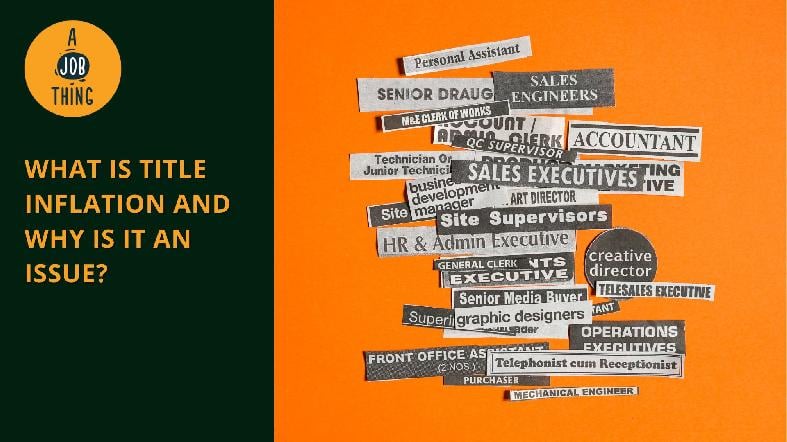
What Is Title Inflation and Why Is It an Issue?
Are You Hiring?
Find candidates in 72 Hours with 5+ million talents in Maukerja Malaysia & Ricebowl using Job Ads.
Hire NowBusinesses are currently cutting costs. Title inflation has seeped into the workplace and is growing exponentially. Layoffs, hiring freezes, and recession fears are causing anxiety among executives.
To balance this one-of-a-kind economic situation, human resources and top execs have devised a method to gratify employees and job hopefuls without spending more money. Some organisations are using fancy-sounding titles to soothe egos and lessen the impact of not paying their staff raises or compensation, hence why it's called title inflation. Title inflation diluted the honour bestowed upon the recipients.
Title inflation has existed for a long time
A senior-level designation, such as managing director, conveys to others that the individual is well compensated and highly appreciated within the financial organisation. The secret is that certain companies treat vice president titles as if they were candy.
The general public is oblivious of the prevalence of inflated corporate titles. When you talk with your financial adviser, whose title is "director" or "senior vice president," you may rest assured that they are in good hands. It also assures them they are working with a highly skilled and seasoned professional.
Several years ago, it was all the vogue for tech organisations and startups to have unusual corporate titles like rockstar, guru, software ninjaneer, and brand warrior.
The downsides of lofty titles
Traditionally, company titles ranged from "associate" to "CEO." The pay is appropriate with the rank. It could be gratifying to get a promotion even if there isn't a wage raise to go with it.
The title of an employee is their identity. It offers them credibility in the workplace and provides them with a sense of power. Outside work, they will drop their title when talking to people socially to obtain influence. The disadvantage is that if you do not deserve the new title, it may come back to haunt you.
Most people are unaware that their corporate title has been inflated and assume it was given on merit. Accepting a lower-level title would, understandably, offend them. As a result, the individual misses out on great opportunities.
You don't want to go backwards now that you've reached a specific level. Instead, you'll use your current position to negotiate a raise for the next job. A title that is too high raises red flags.
When looking for a new job, for example, if your designation is "director," but the new post is below that level, it could be a problem. "So why would you want to go down in title?" the interviewer will ask.
Interviews will be uncomfortable and awkward. The hiring manager or human resources representative was ecstatic to meet you. Due to your title, they had high hopes for your abilities.
During the interview, it becomes apparent that you lack the necessary skills to perform in the role. This happens when the title misleads potential hiring managers. The added problem is that they will be suspicious of you if you say, "I don't care about the position; it's more about the job, company, people, and adding value."
Too intimidated to apply for jobs
People will be discouraged from applying as more organisations post senior-level positions. People will miss out on relevant and suitable opportunities if they are unaware that the title has been inflated.
The company will be frustrated as well. They will not receive résumés from candidates who are a good fit but are too afraid to apply. Those who have the skills for an inflated title will be disappointed when they realise that their background is too advanced for the job and that their time was wasted.
Title inflation causes internal conflicts
It's frustrating to see a coworker promoted and awarded a title a few levels above you. You're left wondering what's going on without knowing whether or not it involved a hefty raise.
You go to your manager because you believe you are as excellent as or better than the one who received the promotion. Since your management does not want to lose you in this competitive job market, they will give in to your demand and raise your title. This situation will continue to play out, reaching grotesque proportions.
Best practices dictate that organisations should not try to manipulate the system. Inflated titles may be a band-aid solution for turbulent times. Companies cannot maintain this approach indefinitely as everyone will eventually catch on, which will affect these companies' reputations. Until then, leadership should ensure that this type of policy is clear and transparent, as it misleads employees and job applicants.
Source: Forbes

